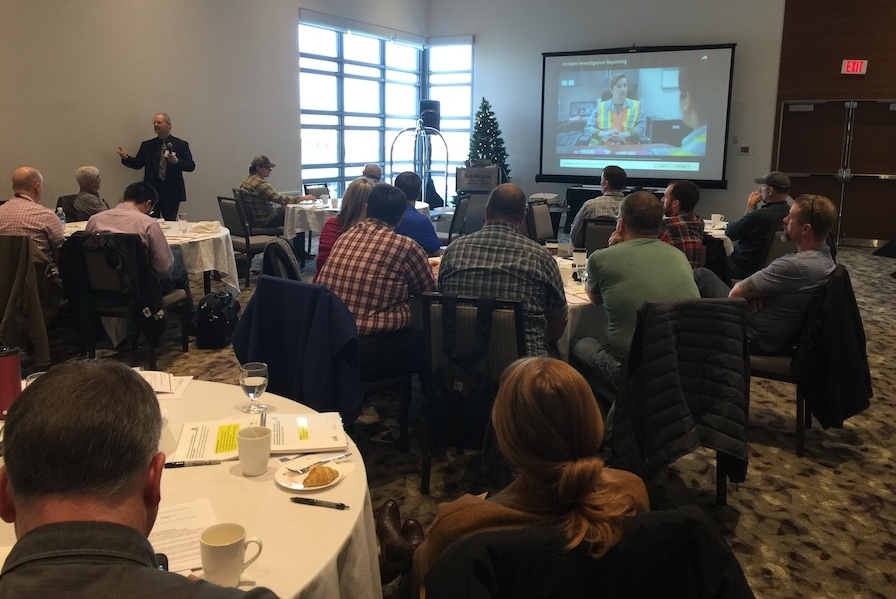
Formalizing incident investigations in the pellet industry
November 22, 2018
By Gordon Murray
Nov. 22, 2018 - The Wood Pellet Association of Canada (WPAC) held a workshop on conducting incident investigations at the Westin Vancouver Airport Hotel on Nov. 20. This workshop was produced in co-operation with WorkSafeBC and media partner Canadian Biomass magazine. The 35 participants included pellet plant operators, maintenance personnel, and representatives from insurance companies, universities, fire detection equipment suppliers, and WorkSafeBC.
 Workshop participants included pellet plant operators
Workshop participants included pellet plant operators This workshop was part of the collaboration between WPAC and WorkSafeBC on implementing Process Safety Management (PSM) in the wood pellet industry. PSM focuses on preventing high-impact process catastrophes: fires, explosions, accidental chemical releases, and structural collapses. Our approach to PSM includes identifying potential major unwanted events and the critical safeguards for preventing such events, and in developing the verification procedures required to ensure that the critical controls are properly maintained.
Incident investigations are an important PSM element. A formal investigation must be carried out any time a workplace incident results in a serious injury or death, an injury requiring medical treatment, near misses that have the potential to cause serious injury, major structural failures, or the major release of hazardous substances. The purpose of an incident investigation is to analyze the facts and circumstances of the incident in order to identify the underlying factors that caused the incident so as to prevent the recurrence of similar incidents. In British Columbia, the legal requirements for incident investigations are established in division 10 of the Workers’ Compensation Act, and parts 21 and 24 of the Occupational Health and Safety Regulation.
There are four stages to incident investigations:
1. a preliminary investigation which must be filed within 24 hours;
2. a report on interim corrective actions;
3. a full investigation which must be submitted to WorkSafeBC within 30 days; and
4. a report on full corrective actions.
A minimum of two people are needed for an incident investigation. There must be at least one worker representative. Serious incidents will have larger investigative teams. Team skills and knowledge should include occupational health and safety fundamentals; work processes, procedures, persons, and industrial relations environment for the particular situation; the ability to conduct and record interviews effectively; the requirements for documents, records, and data collection; and the ability to analyze the data gathered to determine findings and reach recommendations. Team members could include knowledgeable employees, supervisors, safety officers, the health and safety committee, external experts and emergency responders.
An incident investigation report will include information on:
• The employer
• The injured persons
• The place, date and time of the incident
• The type of incident – i.e. death, injury, structural failure etc.
• Names of witnesses
• A detailed timeline and description of the event
• Contributing unsafe conditions
• Corrective actions complete with persons responsible and timelines for completing the corrective actions.
During the workshop, participants prepared mock incident investigation reports for several real-life incidents. This enabled participants to analyze and discuss the root causes of these incidents and to recommend corrective actions to prevent their reoccurrence.
WPAC’s Safety Committee is dedicated to enhancing our industry’s safety culture, to providing training opportunities for all industry participants and to eliminating 100 per cent of all workplace injuries. This workshop has taught us to use incident investigations to learn the root causes of incidents and to prevent them from reoccurring in the future.
Next up: we are planning for a silo fire suppression and prevention workshop to be held in February 2019. Stay tuned.
Gordon Murray is the executive director of the Wood Pellet Association of Canada.
Print this page